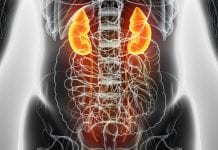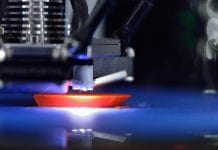medical technology Related News
Algorithm expands ability to assess for clot-removing procedure
An algorithm can help physicians assess whether a patient would benefit from an endovascular clot-removing procedure to remove a clot blocking an artery.
Endovascular thrombectomy...
New technology paves the way for needle-free flu vaccine
A new study has shown that a new needle-free flu vaccine patch worked for the immune system much like a traditional flu shot – without any...
Wearable sweat sensors can detect what is in your blood
Needles could be a thing of the past with the development of new sweat sensors that can tell what is in our blood.
Medical technology...
Mobile App development trends in the healthcare industry
Discover how the healthcare industry is catching up to the rising demand of digital health with mobile app development – but the question is:...
Privileged access management: the cyber priority for the pharmaceutical sector
Privileged access management operates as a much-needed step to secure pharmaceutical organisations in the age of the mass data breach, says CyberArk’s David Higgins.
When...
Is there a way of advancing inflammatory bowel imaging technologies?
Part of the EU’s Horizon 2020 research and innovation program, iThera Medical is to lead €2.3 million research project to advance inflammatory bowel imaging...
World’s first life-saving 3D printed kidney changing the game for surgical operations
At this years SXSW event, the 3D printed kidney took the spotlight, highlighting the technology behind the procedure and demonstrating the future of complex...
What do you know about the mobile bedside bioprinter that can heal wounds?
Envision a day when a mobile bedside bioprinter filled with a patient’s own cells can be wheeled right next to them to heal wounds...
Hospitals joining forces to achieve healthcare solutions
Royal Marsden and University College London, UK, partner with Hyland Healthcare as hospitals seek healthcare solutions to provide comprehensive patient insight.
Two UK hospital trusts...
Do you think AI could treat Chronic Obstructive Pulmonary Disease?
According to WHO, Chronic Obstructive Pulmonary Disease will be the third leading cause of death worldwide by 2030, but could AI successfully treat this?
Following...
Introducing the surgeon who used 3D printing software for a life-changing transplant
Presenting Dr. Tim Brown, consultant transplant surgeon at Belfast City Hospital, Northern Ireland, who used 3D printing software to aid a complex, life-changing operation.
Brown...
Could nanotechnology be a form of spinal cord injury treatment?
Funded by the Future and Emerging Technologies (FET) programme, an EU project, ByAxon, is devising a new generation of spinal cord injury treatment.
To improve...
University Hospital Basel forms new alliance delivering enhanced patient care
University Hospital Basel, Switzerland, and award-winning UK medical 3D printing firm, axial3D have formed a new alliance to deliver improved patient care.
The leading medical...
Inaccuracy in electronic prescribing is warned
Researchers caution warning when using electronic prescribing, as errors are likely to occur in medical record systems.
Electronic prescribing is becoming increasingly common across the...
Nanobots in medicine: the key to fighting chronic diseases with nanomedicine
The emerging technology of nanobots in medicine offers better chances of exploiting nanomedicine to fight chronic diseases such as cancer.
Nanomedicine is a domain of...
MedTech SuperConnector: accelerating commercialisation in UK health sector
Health Europa introduces the MedTech SuperConnector and explores how it will help to translate promising research into commercialisation in the UK.
In April, Research England...
















